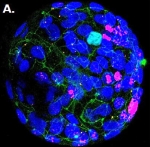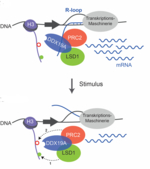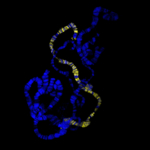
Proinflammatory regulatory T lymphocytes as a therapeutic target in Crohn's disease
Chronic inflammatory bowel diseases are very stressful for those affected and increase the risk of bowel cancer. PD Dr. Robyn Laura Kosinsky from the Bosch Health Campus in Stuttgart, together with researchers from the USA, identified disfunctional regulatory T cells as important drivers of inflammation in Crohn's disease. They also found that with the help of an epigenetically active drug, it was possible to restore the cells’ original…
https://www.gesundheitsindustrie-bw.de/en/article/news/proinflammatory-regulatory-t-lymphocytes-therapeutic-target-crohns-disease
